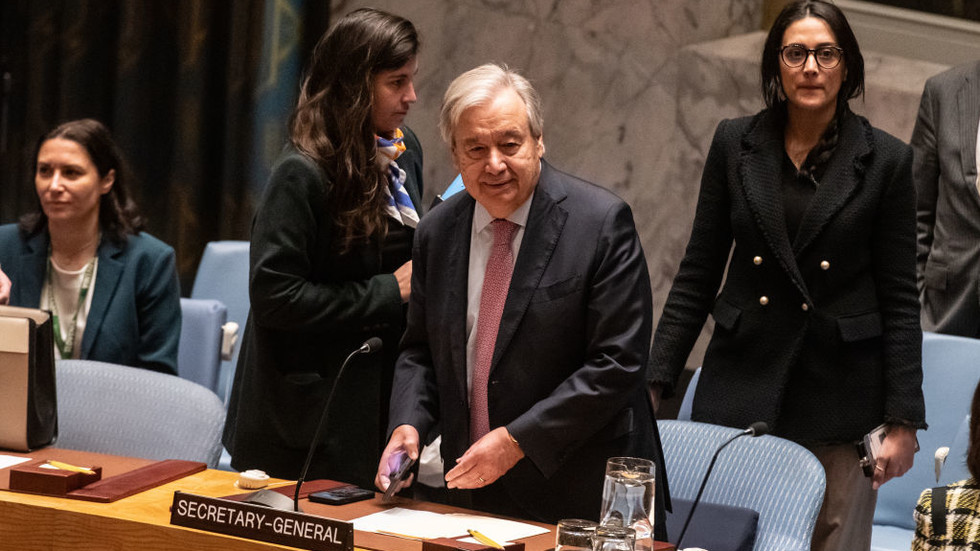World
UN Security Council Backs UN Chief Following Israeli Rebuke

The UN Security Council has expressed its support for Secretary-General António Guterres after Israel issued a strong rebuke. Learn more about the situation and the council’s response.
The UN Security Council has expressed its support for Secretary-General Antonio Guterres following Israel’s decision to deny him entry into the country due to his failure to immediately condemn Iran’s missile attack on Israel.
The 15-member council, without mentioning Israel by name, called on all UN member states to uphold a “productive and effective relationship” with the secretary-general and to “refrain from any actions that undermine his work.”
“The Security Council members expressed their complete support for UN Secretary-General Antonio Guterres and the broader United Nations. The statement emphasized that choosing not to engage with him or the UN is counterproductive, particularly amid rising tensions in the Middle East.”
On Wednesday, Israeli Foreign Minister Israel Katz announced that Guterres was considered persona non grata. He accused the UN chief of not condemning the “abhorrent attack” carried out by Iran’s Islamic Revolutionary Guard Corps a day earlier.
READ ALSO: US Supports Two Permanent Seats for African Nations on UN Security Council
Tehran fired approximately 200 missiles at Israel in retaliation for the Jewish state’s attacks on Gaza and Lebanon, as well as the recent killings of senior Hamas and Hezbollah leaders by the Israeli Defense Forces (IDF).
Following the rebuke from West Jerusalem, Guterres—who had consistently criticized both Israel and Hezbollah for months of cross-border attacks—denounced the Iranian missile attack. He urged both parties to put an end to the “deadly cycle of tit-for-tat violence.”
Israel had earlier initiated a ground offensive against Hezbollah in southern Lebanon. Alongside intensive airstrikes, this operation is intended to halt cross-border rocket and mortar attacks by Hezbollah, according to the IDF.
Hostilities at Israel’s northern border started approximately a year ago when West Jerusalem initiated an invasion into the Palestinian enclave of Gaza. This was in response to a deadly raid by Hamas, a militant group, into southern Israel. Hezbollah, which supports the Palestinians, has pledged to continue its cross-border rocket attacks until there is a ceasefire in Gaza. On the other hand, Israel aims to “eliminate” Hamas entirely and has consistently dismissed calls for a truce from its primary ally, the United States.
